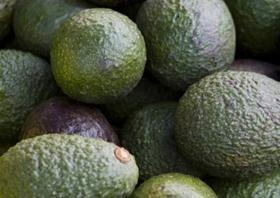
Korea has the potential to become an importer of Chilean avocados given that the Asian country currently has no domestic production and presents low tariff opportunities.
According to a report by Portal Frutícola citing a study from the Embassy of Chile in Seoul’s Agricultural Attaché, Korea depends entirely on avocado imports, with shipments beginning a decade ago from New Zealand and the US, followed by Mexico in 2006.
Between April and August, the US is the sole exporter of the fruit to Korea, leading the Embassy to believe there is “definitely a very good opportunity to compete on the market during that window” provided Chile can send good quality avocados at a lower price than the US.
Under the Free Trade Agreement (FTA) between Chile and Korea, Chilean avocados are currently subject to an import tariff of 3.8 per cent, a figure which will decline to zero in 2011, while New Zealand and Mexico must continue to pay 30 per cent, the Embassy said.
In comparison, the US-Korea FTA means US avocados are subject to a 50 per cent tariff reduction during the first year of the agreement, which would mean a 15 per cent tariff in 2011, before reducing to zero during 2012.
Another aspect that plays in the favour of Chilean avocado imports are Korea's phytosanitary conditions, the report said.
Currently, only New Zealand and some US growing areas have access to China, while Mexico must comply with specific health conditions, notably fruit fly controls.
However, fruit fly does not exist in Chile and therefore the country is a candidate for export to Korea, the Embassy pointed out.
On the negative side, the Embassy admitted that avocados are not considered a daily consumption item or an ingredient for salads in Korean culture.
Rather, the fruit is used more in beauty products, hence the Embassy recommends that producers consider carefully the implications of exporting avocados to the Asian nation.
But if Chile is determined to compete in terms of quality and price, the Embassy suggests the industry should develop a strong promotional campaign to raise awareness and educate Korean consumers about the ways in which to consume avocados.
This year, the Embassy suggests Korea will import 600 tonnes of avocados, up from 325 tonnes in 2009 following a volume decline since 2007 due to the global economic crisis and the weakening of the Korean currency.
Since 2006, Mexico has held a 28.8 per cent share of the market, moving New Zealand to third place, with a 2.9 per cent stake.
In the past year, the Embassy said the average price of imported avocados on the Korean market remained between US$3.18 and US$5.05 per kilogramme, depending on the offer.
Currently Korea has no commercial avocado production, but in last few years the Asian government has promoted investment in the crop, predicting that climate change will improve environmental conditions for the cultivation of this fruit.
The first production of avocados is expected to take place in 2011.
Meanwhile, Portal Frutícola suggests that some Chilean avocado producers (particularly in the region of Petorca) may have lost not only this year’s crop but next year’s also following the severe frosts which covered the country earlier this month.
Crop damage evaluations are still ongoing by the Chilean Hass Avocado Association.






No comments yet